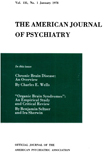ONE THOUSAND UNSUCCESSFUL CAREERS
Abstract
Since time immemorial society has dealt with the problem of poverty on a moral basis. Success has been honorific and failure ignominious, and so handicapped persons failing to make the social grade have been judged by the method of moral evaluation. The terms "lazy," "improvident," "vicious" have been used as terms of reproach. Each advance in civilization has led to a changed technique in dealing with human failures; but in general, all have tended to attribute the squalid condition of the poor to individual qualities.
Latterly there has been a change in attitude. There has been more solicitude for the common man and his welfare and less willingness to allow avarice and greed to go unchecked. The tendency has been away from scrutiny of the individual and toward scrutiny of social organization. Sociologists in particular have attributed the plight of handicapped classes to social disorganization, and vast plans have been made for their relief, with very little information concerning the personality of the individuals involved. Medicine has a place in the social sciences and psychiatry is, in a way, the social wing of the medical profession. For this reason it seemed important to make a critical survey of a substantial number of welfare recipients with a view to determining what their personal qualities and their personal problems were.
Our study involved 1,000 admissions to a large state institution, formerly called a workhouse, latterly called a hospital. It has been a reconnaissance study and therefore exact measurements did not seem applicable. At any rate, the preliminary study was made by examination of the natural history of the organism; that is, what has been the record in functional terms of the trajectories of these persons' lives?
The results are simple. The individuals show an excess of immigrants; a deficit in formal education, in occupational skill, and in marital success. We do not find a preponderance of catastrophic illness, but we do find alcohol to have been an important factor in the failure of these individuals to make a successful adaptation. Our experience indicates the need of further psychiatric inquiry into this field, as the techniques of psychiatry seem to be peculiarly applicable. The data suggest the possibility of poverty often being secondarily economic and primarily either due to chronic illness or behavior disorder.
Access content
To read the fulltext, please use one of the options below to sign in or purchase access.- Personal login
- Institutional Login
- Sign in via OpenAthens
- Register for access
-
Please login/register if you wish to pair your device and check access availability.
Not a subscriber?
PsychiatryOnline subscription options offer access to the DSM-5 library, books, journals, CME, and patient resources. This all-in-one virtual library provides psychiatrists and mental health professionals with key resources for diagnosis, treatment, research, and professional development.
Need more help? PsychiatryOnline Customer Service may be reached by emailing [email protected] or by calling 800-368-5777 (in the U.S.) or 703-907-7322 (outside the U.S.).



